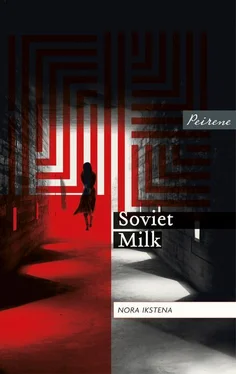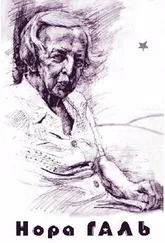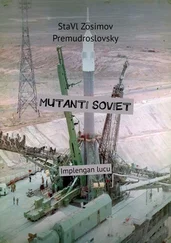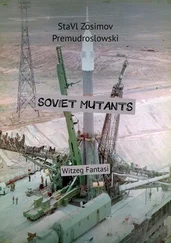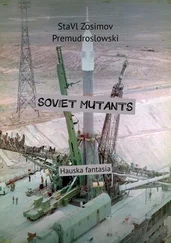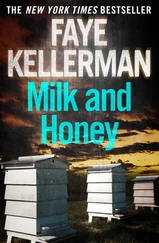I don’t remember 15 October 1969. There are people who swear they remember their birth. I don’t. It’s likely that I was well positioned in my mother’s womb, because the birth was normal. Not particularly long, or particularly short, with the last contractions coming every five minutes. My mother was twenty-five, young and healthy. Her mental state, though, was not so healthy, as I learned later.
I do remember, or at least I can picture, the golden, tender calm of October, alternating with forebodings of a long period of darkness. It’s a kind of boundary month, at least in the climate of this latitude, where seasons change slowly and autumn only gradually gives way to winter.
Probably leaves were falling, and our bad-tempered concierge raked them up in the courtyard. She had come from Kyrgyzstan with her family and been allocated a flat in our building at 20 Mičurina Street. Her slant-eyed little girl sat on the windowsill, slurping borscht and cheerfully inviting everyone into their home. The pre-war grandeur of the flat had been modified to reflect the Kyrgyz woman’s idea of beauty. The previous inhabitants, a Jewish family, had abandoned the flat in 1941, when deportation to Siberia saved them from having to wear yellow stars on their backs a few months later, in Nazi-occupied Riga. Now heavy rugs covered the parquet, the porcelain dishes were filled with sunflower seeds and spittoons stood on the piano lid. Times and religions had commingled. And that’s how it was in the entire building, when I was carried up to the thirteenth flat, carefully swaddled like a chrysalis, as was the custom in those times.
Now and then I have a dream from which I awake feeling sick. I’m clinging to my mother’s breast and trying to suck on it. The breast is large, full of milk, but I can’t get any out. I don’t see my mother, she doesn’t help me, and I’m left to struggle with her breast on my own. Then suddenly I succeed and a bitter, repulsive liquid spurts into my mouth. I gag and wake with a start.
My mother was a young doctor. Perhaps she knew that her milk would have caused more harm than good to her child. How else to explain her disappearance from home immediately after giving birth? She was missing for five days. She returned with aching breasts. Her milk had stopped flowing.
In despair, my grandmother fed me camomile tea for two days. Then she went to the infant clinic. The suspicious doctor berated her in Russian and insulted my mother for abandoning me. But eventually he wrote out a note authorizing her to receive infant formula for me.
During the twenty years I lived with my mother, I wasn’t able to ask her why she had deprived me of her breast. I wasn’t able to because I didn’t yet know that she had. And it would have been an inappropriate question because, as it turned out, the role of mother was to become mine.
*
I don’t remember 22 October 1944, but I can reconstruct it. Riga has been liberated from the Nazis. Bombs have shattered the maternity ward’s windows. It is damp and cold, and the women who have just given birth helplessly wrap themselves in their bloodied sheets. Exhausted nurses and doctors are bundling up dead newborns and drinking as they work. An epidemic that everyone is calling nasal typhoid fever is raging through the hospital. Sounds of wailing, bombs whistling in the air and, through the windows, the smell of burning. My mother has sneaked me out of the ward, bound to her chest, and is squirting her milk into my nose. Pus, milk and blood together drip from my tiny nose. I gag and breathe, gag and breathe.
Then there is silence. A horse pulls a wagon on a sunny autumnal road from Riga to Babīte in the outskirts. My father stops several times to allow my mother to feed me. I no longer gag but breathe calmly and greedily suck my mother’s milk. In the Babīte Forest district we have a lovely house, barely furnished and without a cradle, but my mother makes up a bed for me in a suitcase.
Each morning my father inspects his young spruce trees. That’s what happens until Christmas, when a heavy lorry full of soldiers roars in. They shout in a language my parents don’t understand, then jump out and begin to fell the young spruce trees. My father locks my mother and me in the back room, where she hides me in the suitcase with holes pierced in it so I can breathe. My father runs out of the house, yelling, ‘Bastards, scoundrels!’ and trying to save his spruce trees. The soldiers beat him until he bleeds and throw him into the lorry with the hewn trees. Then they search the house, banging at all the doors. Holding her breath, my mother crouches in a wardrobe in the locked room, holding the suitcase with me inside it on her knees. The soldiers are ransacking the house, the noise is horrendous. Finally, all grows quiet and we listen to the sound of the engine as they drive away.
Towards morning my mother climbs out of the wardrobe. She feeds me, ties me to herself, dresses warmly and heads back to Riga on foot. It is late evening when we arrive at our flat on Tomsona Street, soon to be renamed Mičurina Street. My mother is exhausted but she still has to tape over the windows shattered by bombs during an air raid. Otherwise we would both freeze.
*
I don’t know how my mother and grandmother dealt with my mother’s disappearance at the time, but it was never mentioned. Throughout my childhood the smell of medicine and disinfectant replaced the fragrance of mother’s milk. These chemicals would hang like a cloud around my mother: there when she returned from exhausting night duty at the maternity hospital; still there when, after long hours of wakefulness, she caught up on sleep at home. Her handbag was full of pills, ampoules and various steel instruments. Later I recognized them as terrifying gynaecologists’ instruments. It was a macabre world. If my mother happened to be home at night, she would sit up smoking and drinking coffee, bent over mountains of lamplit medical books. Pinned above her desk were diagrams of wombs, ovaries, pelvises and vaginas from various angles and perspectives.
My mother knew nothing of the world beyond. She would pointedly close her door when the programme Vremya – ‘Time’ – came on television, with lisping Leonid Ilyich Brezhnev. She didn’t read the Riga’s Voice newspaper, for which a long queue formed on the corner of Gorky Street every evening. The lunchtime queue at the meat and dairy shop was equally long. You could buy the popular so-called doctor’s sausage and butter there – but she had no idea of this domestic world. Yet beside the mountains of medical textbooks lay a half-read Moby-Dick. It spoke of her longing for a life of the mind that remained beyond her grasp.
I don’t remember Mother ever hugging me much, but I remember her needle-pricked thigh, where she practised injections. I remember her in bed with blue lips the first time she overdosed, possibly as part of some medical experiment. I remember the smell of her dressing gown, the odour of the bitter tincture given before she was driven to the hospital. And I remember the corridor of the maternity hospital where I was allowed to meet her after night shifts. We would then head for an Aloja Street café and eat solyanka soup and kupati sausages, and she would add caffeine from an ampoule to her coffee. I also remember how our street seemed frozen in time, like a picture clipped from a different era and glued into today. Only the elegant types frequenting the races at the nearby hippodrome were missing. In their place, going home or to work, heads bowed, other kinds of people were hurrying towards Communism, their net bags filled with humble supplies: long loaves, bottles of kefir milk with bright green screw tops, laundry parcels wrapped in grey paper and tied with string.
Читать дальше
